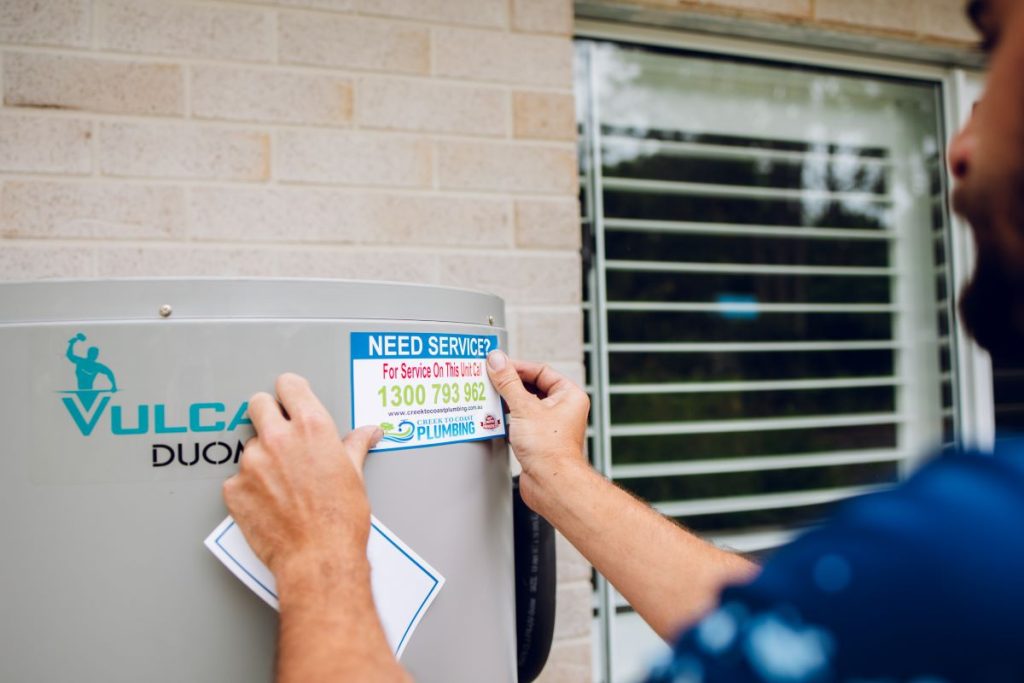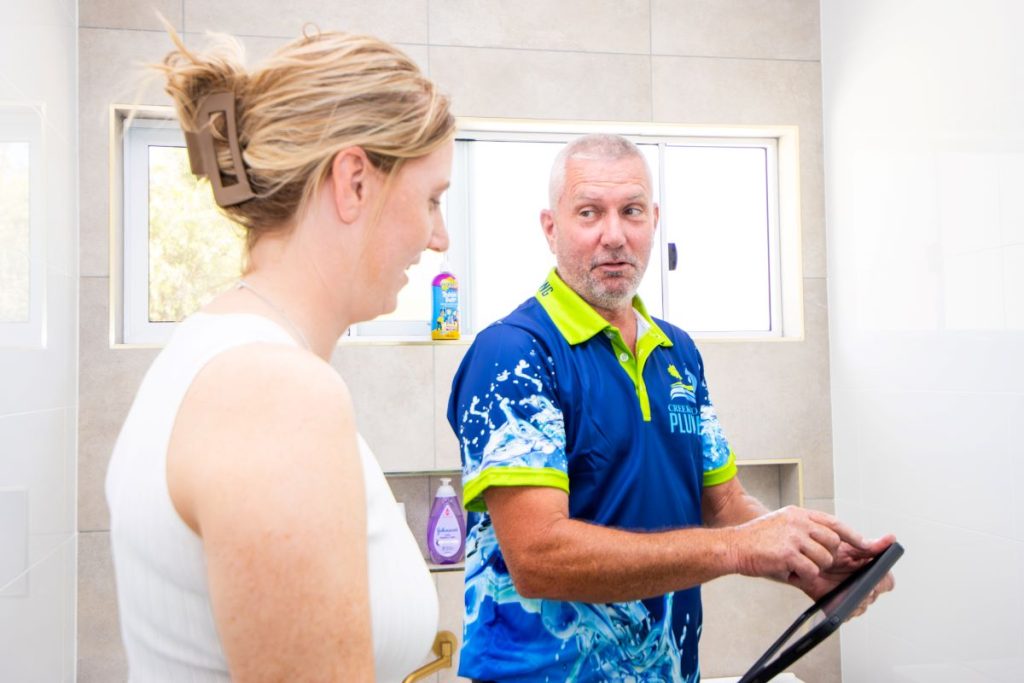Hot water systems play a crucial role in maintaining comfort in your home by ensuring that you have access to hot water whenever you need it. However, like all household appliances, these systems have a finite lifespan. Being aware of the signs that indicate your system is due for replacement can help you avoid inconvenient situations such as cold showers, potential water damage, and costly emergency repairs that can disrupt your everyday life and routine.
How long can you realistically anticipate your hot water system to last? The lifespan of these systems can vary considerably depending on the type of system you own and how well it has been maintained. By conducting regular inspections and providing appropriate maintenance, you can significantly prolong the life of your system and ensure that it delivers consistent performance over time.
Let’s take a closer look at the specifics to provide you with a more comprehensive understanding.

Understand the Lifespan and Maintenance of Various Hot Water Systems
Here’s a detailed overview of what you can typically expect regarding the lifespan and operational performance of the most common hot water systems found in Queensland homes:
Electric Storage Hot Water Systems
- Expected Lifespan: 8–12 years
- Common Reasons for Failure: Frequent issues include internal corrosion, worn-out anode rods, and the accumulation of sediment that can impede performance.
- Key Signs to Monitor: Watch for rusty or discolored water, leaks around the base of the unit, and slower heating times, all of which may indicate underlying problems that require attention.
Gas Storage Hot Water Systems
- Expected Lifespan: 8–12 years
- Common Reasons for Failure: Similar problems to electric systems can occur; however, these systems may fail sooner, especially when exposed to salty coastal air.
- Key Signs to Monitor: Look out for pilot light issues, lower water temperatures than expected, or unusually high gas bills, which may indicate inefficiency in operation.
Instant Gas Hot Water Systems (Continuous Flow)
- Expected Lifespan: 10–15 years
- Reasons for Longevity: These systems do not utilize a storage tank, which significantly reduces the risk of corrosion that can lead to failures over time.
- Key Signs to Monitor: Be alert for inconsistent water temperatures, ignition failures, or a noticeable drop in water flow rate, which may indicate the need for servicing.
Electric Instant Hot Water Systems
- Expected Lifespan: 10–15 years
- Common Issues: Failures often arise from malfunctioning heating elements or thermostats, which can compromise the system’s overall performance.
- Warning Signs: Be vigilant if your water temperature fluctuates between hot and cold or takes longer than usual to heat up, as these can indicate underlying problems that need to be addressed.
Heat Pump Hot Water Systems
- Expected Lifespan: 10–15 years
- Energy Efficiency: These systems are known for their high energy efficiency; however, they may be sensitive to climate conditions and their installation location, which can impact performance.
- Signs of Trouble: Warning signs may include louder than usual operation, prolonged heating cycles, or rising energy bills, all of which indicate a need for professional inspection.
Solar Hot Water Systems
- Expected Lifespan: 15–20+ years for solar panels, 8–12 years for the storage tank
- Important Note: Typically, the storage tanks wear out before the solar collectors, which can have implications on the overall system’s performance.
- Key Signs to Monitor: Be vigilant if the water fails to heat adequately on overcast days, or if you notice rusty water or issues with booster operations.

Identifying the Warning Signs of a Failing Hot Water System
Even before your hot water system reaches its expected lifespan, it may begin to show alarming signs indicating that it is under considerable stress. These warning signs include:
- Fluctuating Temperatures
If your water takes longer to heat up or runs out more quickly than it used to, it may be time to investigate further to determine the underlying issue. - Rusty or Discolored Water
This often indicates corrosion within the tank or a deteriorating anode rod, both of which require immediate attention to prevent additional damage and costly repairs. - Unusual Noises
Popping, gurgling, or banging sounds during the heating cycle typically signal sediment buildup inside the tank, which can significantly impact efficiency. - Leaks or Pooling Water
Even a minor drip can indicate that your tank may be cracking or that the valves are beginning to fail, making prompt inspection necessary to avoid further complications. - Higher Energy Bills
As a unit ages, it often struggles to produce the same quantity of hot water, which forces it to work harder and results in increased energy costs that can affect your budget.
The Impact of Seasonal Changes on Hot Water System Efficiency
In Queensland, the transition from warm to cooler months can pose significant challenges for older hot water systems. As outdoor temperatures drop, these systems must work harder to maintain the desired water temperature, and units that are nearing the end of their lifespan may experience complete failure during this critical period.
How to Determine the Right Time for Hot Water System Replacement
If your system exhibits any of the following characteristics, it may be time to consider upgrading to a new model:
- Over 10 years old
- Frequently experiencing breakdowns or malfunctions
- Failing to meet your household’s hot water demands consistently
- Exhibiting visible signs of wear or corrosion
If you recognize these indicators, it might be the right moment for an upgrade that can improve your home’s efficiency.
At Creek to Coast Plumbing, we don’t just replace your unit; we perform a thorough evaluation of various factors such as your family size, water usage habits, energy preferences, and the layout of your property to recommend the most efficient and cost-effective hot water system tailored to your unique needs.

Making Informed Decisions: Choosing the Ideal Hot Water System for Your Household
Based on your individual needs and household requirements, our expert team may recommend the following:
- Electric or Gas Storage systems for their reliability and cost-effectiveness, making them suitable choices for traditional homes.
- Continuous Flow (Instant) systems, which are ideal for smaller homes or households with lower hot water consumption, ensuring comfort without excess.
- Heat Pumps that offer substantial energy savings, particularly advantageous in warmer climates, providing both efficiency and eco-friendliness.
- Solar Hot Water systems designed for long-term cost savings and environmental sustainability, promoting a greener lifestyle while reducing energy bills.
Additionally, we assess whether the current location of your hot water system is optimal or if relocating it could enhance performance and overall efficiency, ensuring that you get the best return on your investment.
Seize the Opportunity for a Hot Water System Upgrade
Replacing your hot water system at the right time is not merely about preventing system failure; it also offers a prime opportunity to upgrade to a more reliable, energy-efficient model that better aligns with your lifestyle and needs.
If your unit is showing signs of ageing or if you are uncertain about which system is ideal for your home, the licensed plumbers at Creek to Coast Plumbing are here to provide you with expert guidance tailored to your specific situation.
The Article: Hot Water System Lifespan: A Guide for Queensland Homes first appeared on https://writebuff.com
The Article Hot Water System Lifespan Guide for Queensland Homes Was Found On https://limitsofstrategy.com

